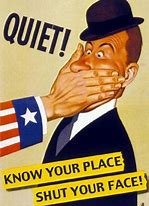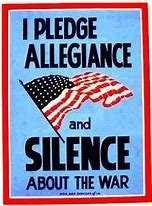
Okay, here is a draft opening paragraph for an SEO friendly article on the Espionage and Sedition Acts of 1917 and 1918, keeping the word count at a minimum of 300 words, and using the conversational language and punctuation changes you requested:
The Espionage & Sedition Acts of 1917 & 1918: A Time of Fear & Repression?
The Espionage Act of 1917 , passed in the United States amidst the turmoil of World War I , aimed to curb dissent against the war effort. This act , in a nutshell , made it a crime to interfere with military recruitment or to obstruct the draft , & even criminalized the distribution of “false statements” or “disloyal , scurrilous , or abusive language” about the government or the armed forces . What might seem like common sense today , was considered a draconian crackdown on free speech in 1917 , sparking fear and suppression amongst American citizens.
But , the story doesn’t stop there . The Espionage Act wasn’t the only legislation silencing criticism of the government & the war . One year later , in 1918 , the Sedition Act was passed , effectively expanding the reach of the Espionage Act & clamping down further on free expression . This act essentially made it illegal to “utter , print , write , or publish any disloyal , profane , scurrilous , or abusive language intended to bring the form of government , the Constitution , the military , or the flag into contempt , scorn , contumely , or disrepute , or to advocate , incite , or encourage any opposition to the cause of the United States in the war . . .”.
The passage of these acts marked a period of heightened fear and repression in the US , & the consequences for individuals speaking out against the war or the government were real & often severe . They not only threatened free speech , but also highlighted a stark shift in the relationship between the government & the citizenry , showcasing a heightened desire to control public opinion and suppress dissent . We can ask , how did these acts shape the discourse around national security & free speech in the US ? & were they a necessary tool in wartime , or a grave injustice?
Related Post : act like a lady think like a man book
These questions , & more , form the crux of the discussion on the Espionage & Sedition Acts of 1917 & 1918 . Delving into this tumultuous chapter of US history reveals a crucial insight into the evolving dynamics of free speech & national security during times of conflict .
The Espionage and Sedition Acts of 1917 and 1918: A Crackdown on Dissent During World War I
The Espionage and Sedition Acts of 1917 and 1918 stand as stark reminders of the tensions that can arise between national security and individual liberty during times of war. These acts, passed by Congress during World War I, aimed to suppress dissent and criticism of the war effort, significantly impacting complimentary speech rights in America.
What were the Espionage and Sedition Acts?
The Espionage Act, passed in June 1917, was initially intended to address espionage and sabotage. However, its scope was broadened to include a wide scope of actions deemed detrimental to the war effort. The Sedition Act, enacted in May 1918, further expanded upon the Espionage Act by criminalizing any speech deemed “disloyal, profane, scurrilous, or abusive” towards the government, the flag, or the military.
The Espionage Act of 1917
The Espionage Act of 1917 aimed to prevent the disclosure of sensitive military information and to curb any actions that could hinder the war effort.
What did the Espionage Act of 1917 criminalize?
The Act criminalized a wide scope of actions, including:
- Espionage: Gathering or transmitting military information to enemy nations.
- Sabotage: Destroying or damaging government property or war materials.
- Obstruction of the draft: Interfering with the recruitment and enlistment of soldiers.
- Interference with military operations: Any act that could hinder the military’s ability to conduct war.
How did the Espionage Act impact complimentary speech during World War I?
The Espionage Act had a chilling effect on complimentary speech, as it cast a wide net over dissent and criticism. The Act’s broad language allowed the government to prosecute individuals for expressing their opinions about the war, even if those opinions were not intended to incite violence or harm the war effort.
What were some of the key provisions of the Espionage Act?
Key provisions of the Espionage Act included:
- Prohibition of false statements: Making false statements that could interfere with the military effort.
- Obstruction of recruitment: Hindering the recruitment or enlistment of soldiers.
- distribution of “disloyal” materials: Distributing materials considered “disloyal” or “treasonable.”
- Incitement to insubordination: Encouraging mutiny or rebellion within the military.
The Sedition Act of 1918
The Sedition Act of 1918 took the crackdown on dissent even further.
What was the Sedition Act of 1918, and how did it expand upon the Espionage Act?
The Sedition Act was an amendment to the Espionage Act, and it specifically targeted speech that was considered “disloyal, profane, scurrilous, or abusive” towards the government, the flag, or the military. It essentially criminalized any criticism of the war effort, regardless of whether it posed a real threat to national security.
What types of speech were considered seditious under the Sedition Act?
The Sedition Act criminalized a wide scope of speech deemed “seditious,” including:
- Criticism of the government’s war policies.
- Speaking out against the draft.
- Distributing anti-war literature.
- Expressing sympathy for the enemy.
- Using “profane” language against the government or the military.
What were the punishments for violating the Sedition Act?
Violating the Sedition Act carried severe penalties, including:
- Fines up to $10,000.
- Imprisonment for up to 20 years.
The Context: World War I and a Nation at War
The Espionage and Sedition Acts were enacted during a time of intense national anxiety and fear.
How did World War I impact American society?
World War I significantly impacted American society. The war brought about widespread economic disruption, social upheaval, and a heightened sense of patriotism and nationalism.
What were the fears and anxieties surrounding the war?
The war brought with it anxieties about:
- National security: The fear of enemy spies and saboteurs within the country.
- Economic instability: Concerns about the war’s impact on the economy and jobs.
- Social unrest: The possibility of widespread dissent and civil unrest.
How did the government respond to these fears?
The government responded to these fears by promoting a strong sense of national unity and by cracking down on dissent. The Espionage and Sedition Acts were seen as tools to suppress any opposition to the war effort.
Key Cases and Controversies
The Espionage and Sedition Acts led to a number of landmark Supreme Court cases that challenged the limits of complimentary speech.
The Schenck v. United States case: Testing the limits of complimentary speech.
In the landmark case of Schenck v. United States (1919), the Supreme Court upheld the Espionage Act. The Court established the “clear and present danger” test, which allowed the government to restrict speech that posed a significant threat to national security.
The Abrams v. United States case: Further challenges to complimentary speech rights.
The Abrams v. United States case (1919) further challenged complimentary speech rights. The Court upheld the conviction of several Russian immigrants who had distributed leaflets criticizing the American war effort in Russia. This case highlighted the government’s willingness to suppress even seemingly harmless dissent.
The Debs v. United States case: An example of the government's crackdown on dissent.
The Debs v. United States case (1919) involved Eugene Debs, a prominent socialist leader, who was convicted under the Espionage Act for delivering an anti-war speech. This case exemplified the government’s aggressive prosecution of individuals who dared to criticize the war effort.
The Impact and Legacy of the Espionage and Sedition Acts
The Espionage and Sedition Acts had a profound impact on civil liberties during World War I.
How did the Espionage and Sedition Acts impact civil liberties during World War I?
The acts significantly restricted complimentarydom of speech and expression, silencing critics of the war effort and chilling any form of dissent.
What were the long-term consequences of these acts?
The Espionage and Sedition Acts left a lasting legacy on complimentary speech in America. They highlighted the fragility of complimentary speech rights during times of national emergency and demonstrated the potential for government overreach in the name of national security.
How did these acts shape future debates about complimentary speech and national security?
The acts continue to shape debates about the balance between national security and individual liberties. The “clear and present danger” test established in Schenck v. United States has been used to justify restrictions on complimentary speech in subsequent cases.
The Espionage Act, Sedition Act, and World War I: A Complex Legacy
The Espionage and Sedition Acts remain a textious subject in American history.
How did these acts reflect the tensions between national security and individual rights?
The acts reflect the complex and often conflicting demands of national security and individual rights, especially during times of war.
What are some of the key lessons we can learn from this period of American history?
The Espionage and Sedition Acts offer crucial lessons about:
- The need for vigilance: The importance of safeguarding civil liberties, even during times of crisis.
- The dangers of government overreach: The potential for governments to suppress dissent under the guise of national security.
- The importance of critical thinking: The need to carefully consider the potential consequences of government actions that restrict complimentary speech.
How do these acts continue to resonate today?
The Espionage and Sedition Acts continue to resonate today, as debates about complimentary speech and national security remain pertinent in a world increasingly marked by terrorism and conflict.
Conclusion
The Espionage and Sedition Acts of 1917 and 1918 remain controversial to this day. They represent a significant chapter in the history of complimentary speech in America, and their legacy continues to shape debates about the balance between national security and individual liberty. By understanding the context, the impact, and the enduring significance of these acts, we can gain a deeper appreciation for the complexities of complimentary speech in a democracy.

Leave a Reply